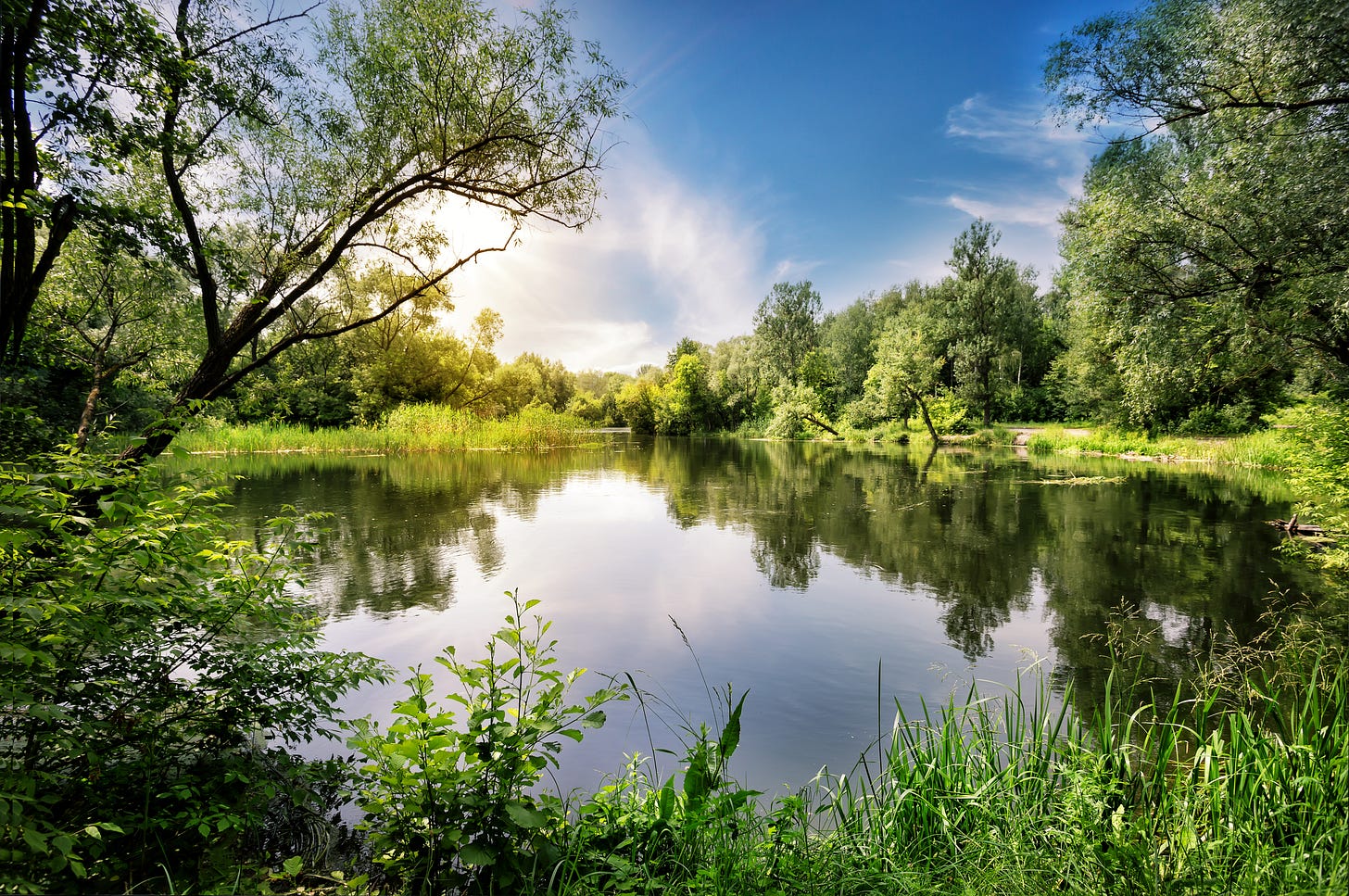Nature's Wealth #018
Hello and welcome again to Every Dawn. Today, I want to read you another statement of Epicurus, the thing we've been doing in the past few days, and it is another thought that I find very interesting:
"Nature's wealth at once has its bounds and is easy to procure," he says, "but the wealth of vain fancies recedes to an infinite distance."
At first sight, this is a little cryptic, perhaps hard to understand. What does it mean?
Nature's wealth is being contrasted with the wealth of “vain fancies.” So, there are natural things that cause us to feel good—there are natural pleasures. But what exactly is a natural pleasure? A natural pleasure is something that nature gives me freely; nature provides for me, and this makes me feel good. Birdsong, for example, or a nice sunset, or swimming in the sea—these are all things that are free. They're given to me by nature. Walking up a mountain perhaps, hiking up a mountain and looking at the view, or sitting out on a nice summer day and enjoying a cool breeze. These are all natural things that cause me pleasure. Looking at flowers, looking at butterflies—right, these are all natural pleasures.
And then we have those vain ones, and they are vain because they are not given by nature, and they don't actually produce any natural response in us, but we only want them because other people want them. They are socially given to us as something that we have to aspire to, but we are not naturally inclined to them. What would this be? A better job, a higher paid job, a bigger car, a bigger house—these are all what he calls "vain fancies." More social titles. I want to be the president of this or that. So, these are all vain fancies, and you can see it from the fact that a child, for example, would understand the natural pleasures. A child would understand what is nice about the sunset, but you'd have trouble explaining to a child why being the director of this company is better than being, you know, the vice-director, or the accountant, or something like that. All these artificial hierarchies in which we put ourselves are hard to explain to someone who is not part of this society and who hasn’t yet internalized all these weird value systems.
And then, why does he say that it "recedes to an infinite distance"? I think this is the other thing that is important to understand. "Recedes to an infinite distance" means that whenever I gain something new of these vain fancies—I have a bigger car, then I want a still bigger car; I get a bigger house, I want a still bigger house; I become the chief accountant, then I want to become the director—you know, it's always chasing one after the other, more and more goals. This is not the same with nature's gifts. When I look at a sunset, I'm not chasing an even better sunset. When I look at a few flowers, I don't want even more flowers. I'm okay with that.
So, when we go out today, let us think of this a little bit. When we enjoy something, let's think: is it something natural? Is it something that's free, that nature gives me as a gift, and which makes me happy? Or is it something that just causes more craving in me and the wish to have more, more, and more, without actually giving me genuine happiness?
Thank you, and see you tomorrow. Bye-bye.


